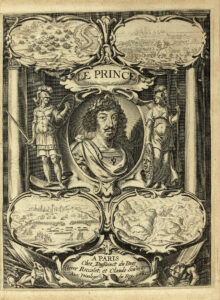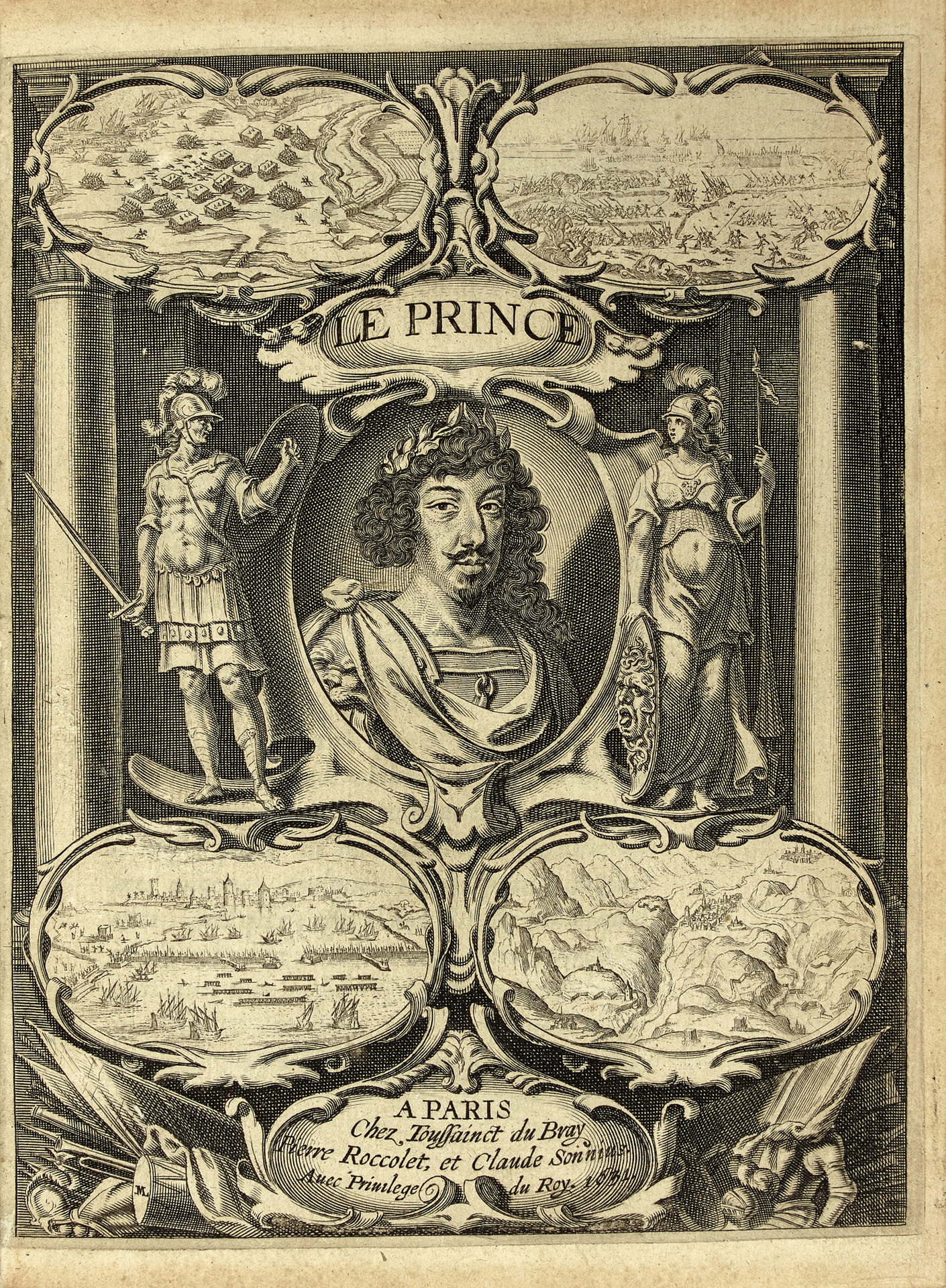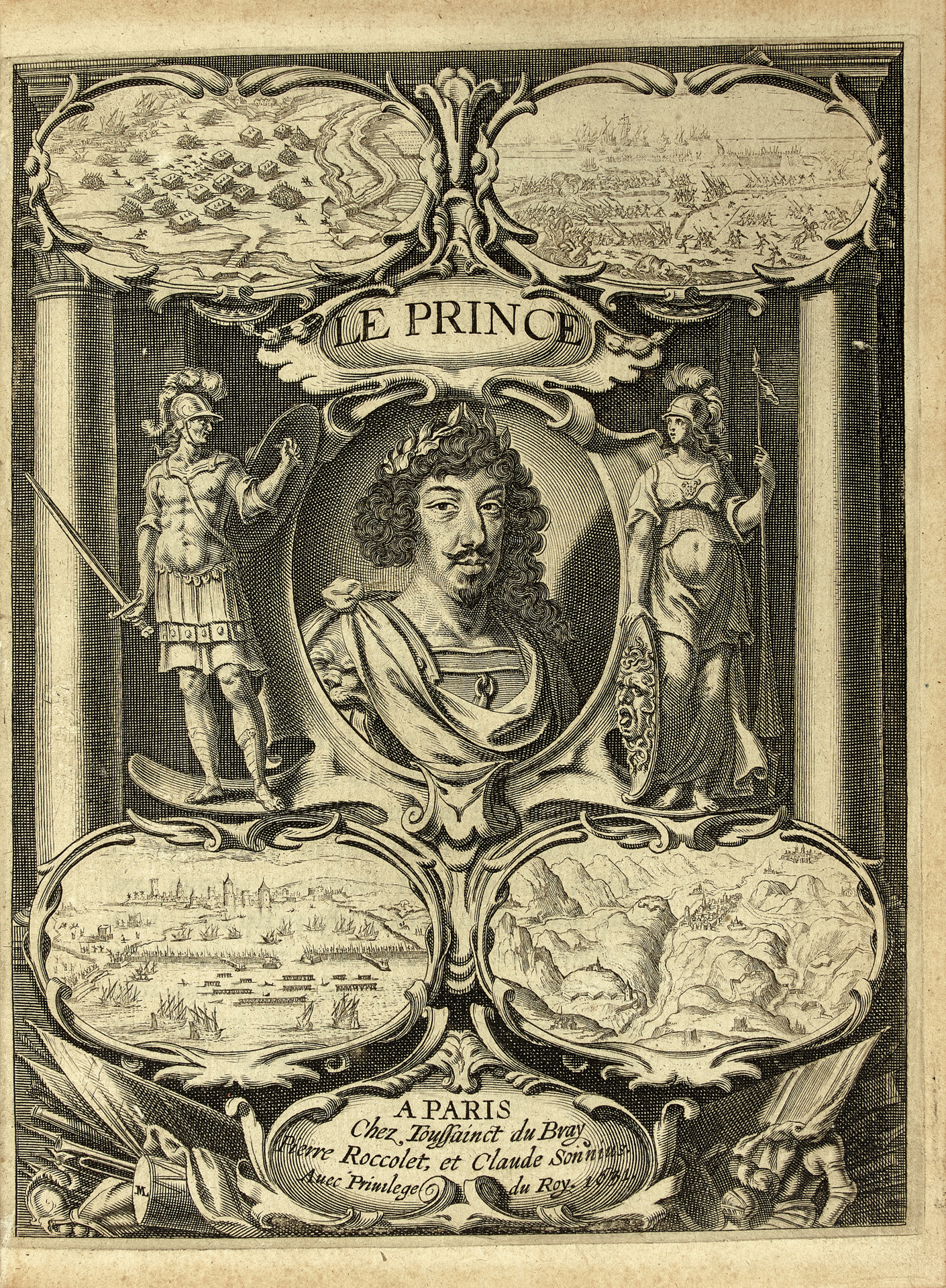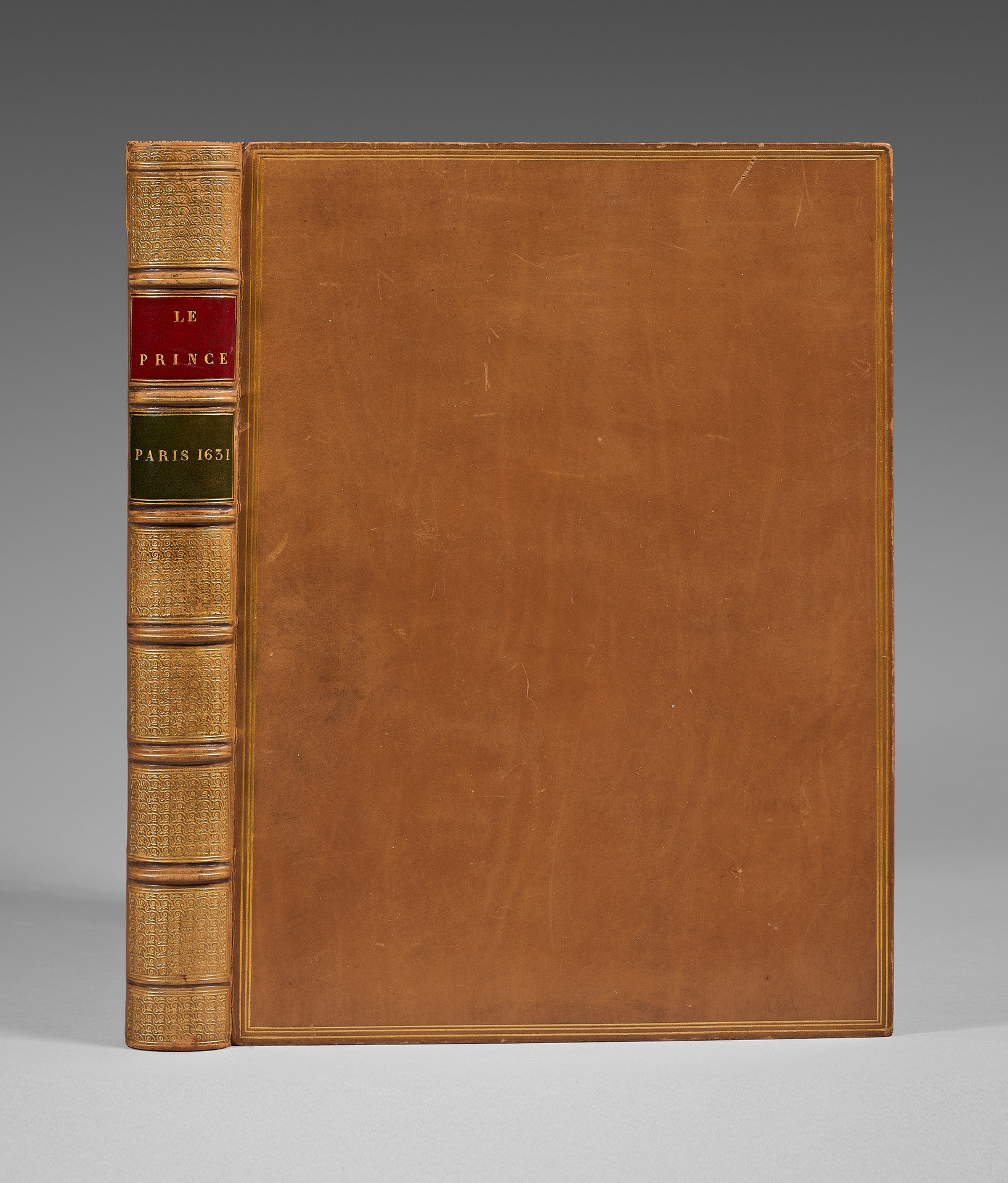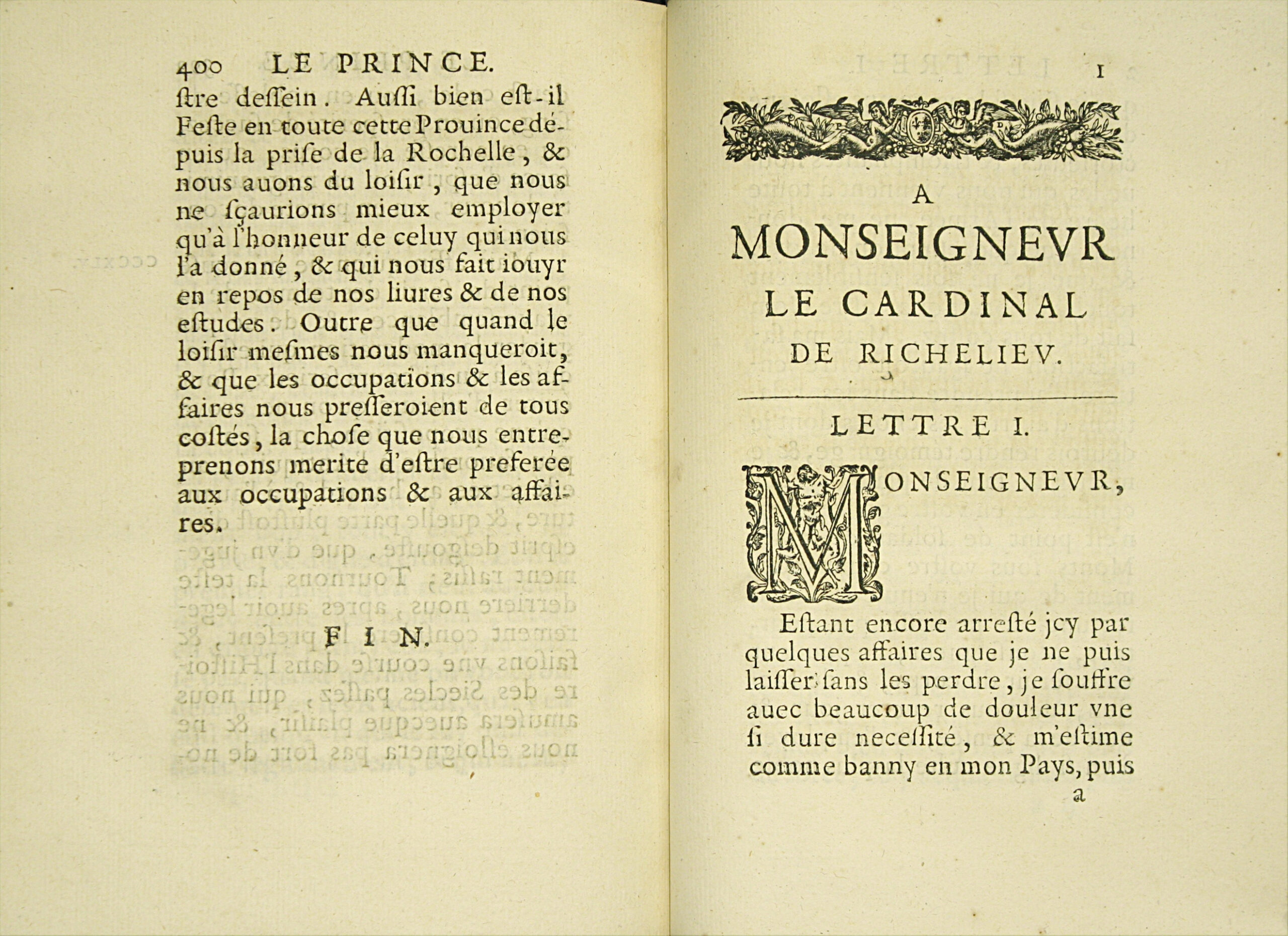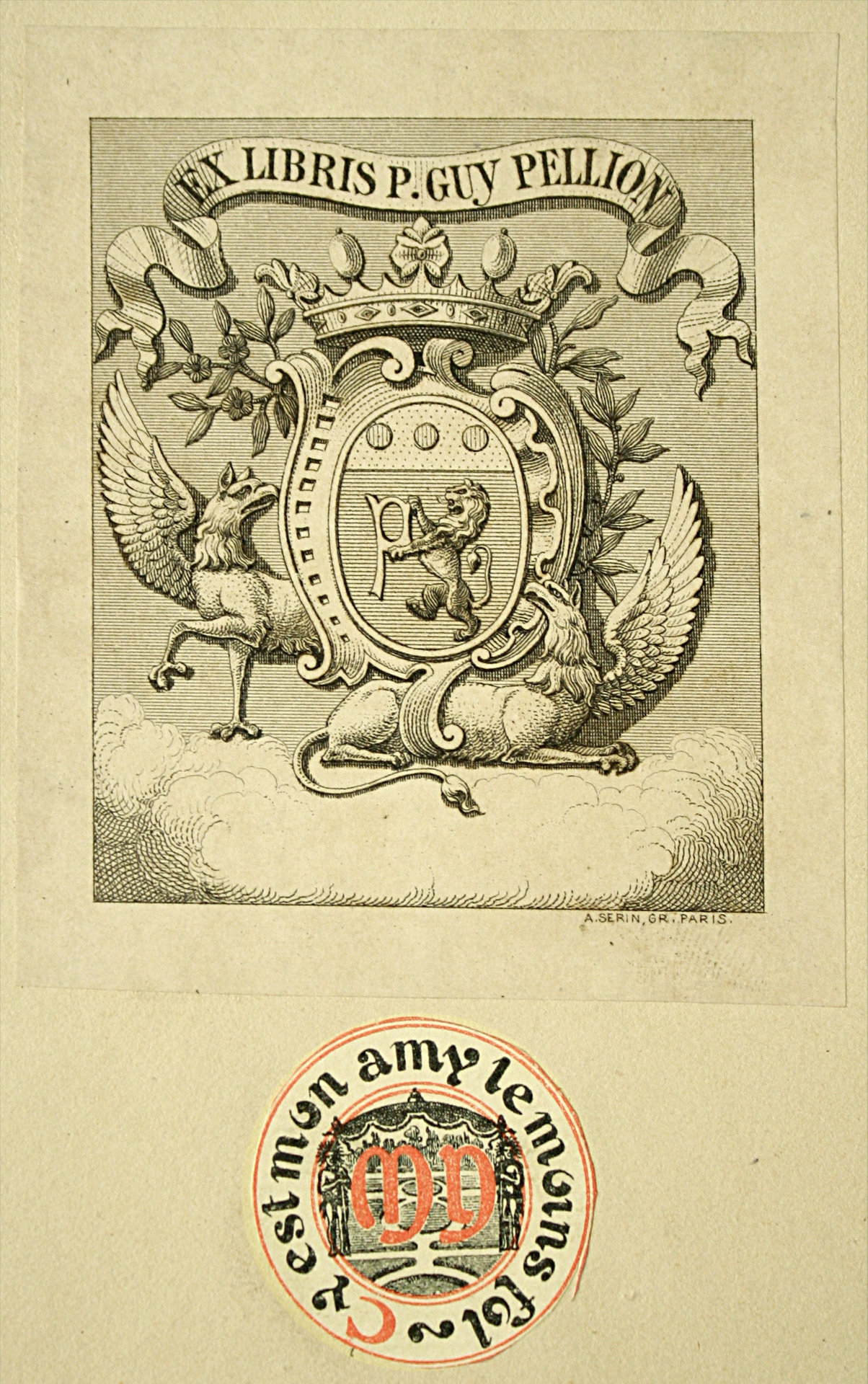Paris, Toussainct du Bray, P. Roccolet, Cl. Sonnius, 1631.
4to [237 x 178 mm] of 27 pp., (1) p., 400 pp., 56 pp. and (8) ll.
Full light calf, triple gilt fillet on the covers, spine ribbed richly decorated, green and red morocco lettring piece, gilt edges. Binding from the 19th century signed by Niédrée.
First edition of the Prince, “the work that contributed to set the language and is one of the finest monuments of French prose”.
“First edition illustrated with a fine frontispiece as title presenting Louis XIII’s portrait”.
Tchemerzine, I, 355.
Jean-Louis Guez de Balzac (1597-1654) enjoys a new perspective. If we recognize in him the restorer of the French language praised by Ménage, we examine with more interest his conceptions of moral and politics, “his old mistress”.
”Full of harmony and great rigor, this work contributed at least as much as the ‘Letters’, to set and constitute one of the finest monuments of the French prose”. (Dictionnaire des Œuvres, V, 511).
“[…] To put in a nutshell, Guez de Balzac did prose the same favor as malherbe did for poetry. He prepared the opening out of classic prose” (Dictionnaire des Auteurs, I, 208).
« On his return from Italy, where he had followed the Cardinal de la Valette, Balzac had already made himself famous by his Letters. He was welcomed as a triumph and sought after by all the elegant and literate world; Richelieu, in particular, did everything he could to attract such a precious mind. It was probably in the midst of the court, which he did not frequent much after 1624, that Balzac conceived his plan to write this book: perhaps it was more or less directly commissioned from him.
It is said that, having heard a gentleman quote the indignation of one of his friends, then a prisoner of the barbarian pirates, provoked by the insults lavished on him in the name of Louis XIII, Balzac had the idea of devoting his pen to recounting the happiness of France in living under a sceptre as glorious as that of this king. Although “Le Prince” claims to be somewhat general and the king’s name does not appear, it is in fact an idealised painting of Louis XIII, a hero worthy of antiquity. Full of harmony and great rigour, this work contributed, at least as much as the “letters”, to fixing the language and constitutes one of the most beautiful monuments of French prose. Balzac’s political ideas are not indifferent, they are the perfect expression of the spirit of his time. (Dictionary of Works, V, 511).
“It was from Italy that he began to write his ‘Letters’, which would one day bring him fame. From the outset, he won the admiration of French high society. So when he returned to Paris the following year (1622), he was already famous. One after the other, all the great personalities began to seek him out; Richelieu himself did everything he could to make himself well seen, so keen was he to attach himself to such a remarkable mind […] As soon as it saw the light of day, the collection obtained a prodigious success: not only in France, but in all of Europe […] In short, Guez de Balzac given to prose the same service as Malherbe given to poetry. He prepared the birth of classical prose. (Dictionary of Authors, I, 208).
The Prince (1631), discouraged by a pastoral prelude, but enlightened by arguments in 1634, claims to depict “ la révolution morale ” brought about by Richelieu’s imperious power. Balzac, this time, pleads for a monarchic paternalism, where “ la Prudence soulage la Justice ” according to a reason of State concerned with the public good. In this work, rich in “Toutes les vertus oratoires”, Balzac strives to achieve ‘t “la perfection du genre sublime” by building on the ‘Lettres Sainctes‘ and the tradition of Cicero and Seneca.
Through his own contradictions Balzac establishes a new, heroic and modern “humanism”, embracing heart, taste and reason under the name of politeness. He was a Latin prose writer and poet of the first rank, and he fulfilled the major ambition of the statutes of the academy by the indisputable triumph of French letters. Resigned to the hidden God, he believed in a rational creation and tried to rethink society and art according to nature. As an “observer”, he developed a policy in which culture could make princes and subjects “more human”. A champion of retirement, but still a worldly man, he pleads for urbanity against the double treason of arrogant ignorance and pedantry. Finally, as an “Atticist”, he testifies in favour of a Malherbe-like work that does not stifle the spontaneity nor the “reasonable fury” of a Théophile. Strength and majesty, but gentleness; diversity, but order, economy and choice; seriousness, but finesse of mockery and gaiety, such are the marks of the art of pleasing and persuading that he proposes to the court and to good society, and which found an authentic Louis XIII classicism.
A precious and very beautiful copy from Guy Pellion’s collection with ex-libris.
